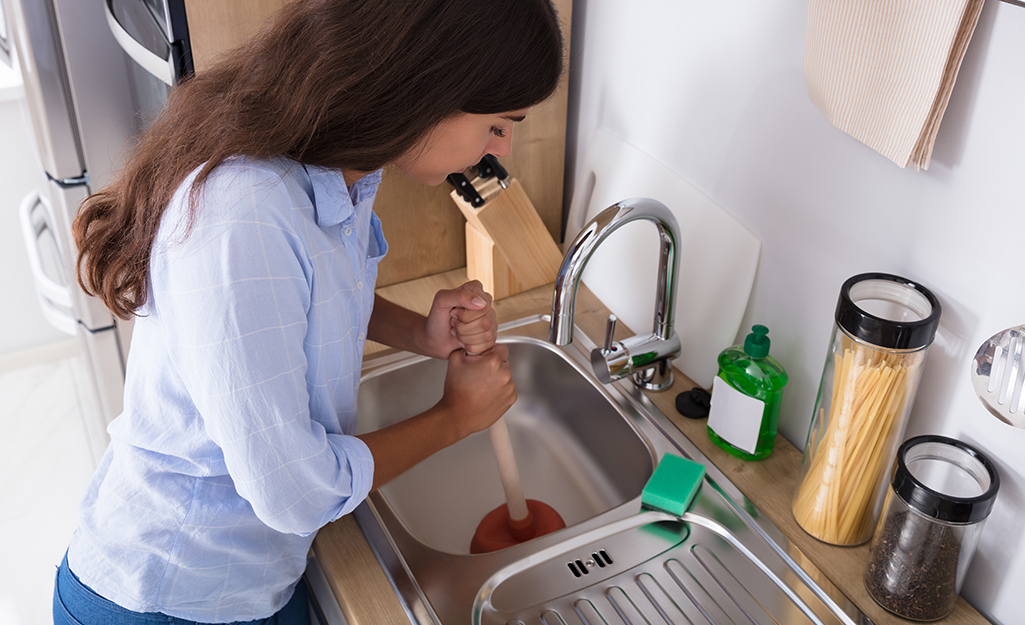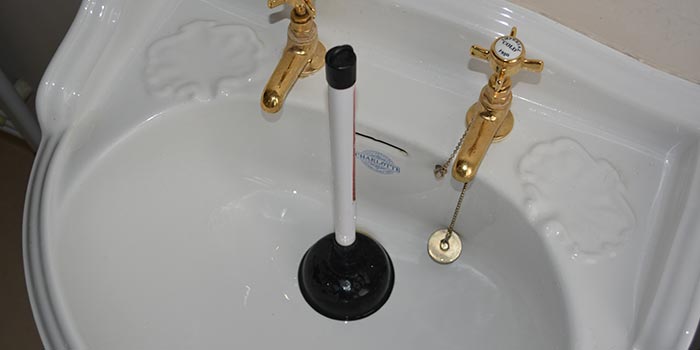What're your beliefs about 4 Tips to Fix a Slow Draining Sink?

Intro
We have actually all existed: You're brushing your teeth or cleaning your hands, and you observe the water pooling in the sink. As opposed to quickly swirling down the drain, it lingers, turning your once-refreshing morning regimen right into a miniature overload scene. A slow-draining sink isn't just annoying; it's typically an indicator of bigger pipes issues lurking below the surface area. The good news is that the majority of slow-draining sinks can be taken care of with a little knowledge, a couple of fundamental devices, and some perseverance. Prepared to tackle this project head-on? Let's roll up our sleeves and dive right in.
Recognizing the Reasons For a Slow-Draining Sink
Before you start poking around in your pipes, it assists to recognize what could be creating the downturn. Comprehending the origin makes it less complicated to select the right repair.
Usual Offenders Behind Slow Drainage
So, what's blocking points up? Commonly, it's a mix of daily particles-- think hair, soap residue, tooth paste residue, and leftover food bits. Gradually, these little bits accumulate and hold on to the pipe wall surfaces, slowly narrowing the passage and making it harder for water to go through. In some cases, natural resource from hard water can likewise include in the crud, producing the excellent storm for persistent clogs.
When is it Time to Do Something About It?
If you discover the water draining pipes slower than common, it's a great concept to interfere quicker rather than later on. Waiting as well long might bring about finish blockages, unpleasant odors, and even pipeline damages. If the water takes more than a couple of seconds to remove after switching off the tap, consider it a red flag and prepare to put on your DIY hat.
Devices and Materials You'll Require
The right devices make all the distinction. Thankfully, you will not need a completely stocked plumber's van to do the job.
Crucial Tools for DIY Repairs
A plunger is your best starting factor. A little, sink-sized bettor produces suction that can remove small blockages. For even more consistent clogs, a drain serpent (often called a plumbing professional's auger) works marvels. A set of gloves, a flashlight, and possibly a set of protective safety glasses are also handy.
Recommended Cleansing Solutions
Light recipe soap and warm water can aid break down oily build-up. A blend of baking soda and vinegar is a time-tested home remedy, and chemical cleansers offer an even more environmentally friendly method. Maintain chemical drain cleaners as a last option, as they can be rough on your pipelines.
Safety And Security First: Safety Measures and Preparations
Before you launch into unclogging setting, think of safety and security. You're taking care of potentially unclean water and debris, so slip on a set of gloves. If you're making use of chemical cleansers, make sure the area is well-ventilated and comply with the directions on the tag.
Safety Equipment and Work Space Setup
Lay down some old towels or cloths around the sink area to catch dashes. Eliminate any type of things that could enter your means, like soap dispensers or tooth brush owners. See to it you have great illumination-- get a flashlight if needed.
Step-by-Step Overview to Fixing a Slow-Draining Sink
Now, allow's get into the nitty-gritty. This step-by-step procedure will guide you via simple techniques to restore your sink's drainage.
Step 1: Get Rid Of and Clean the Stopper
Commonly, the stopper (that little plug you push down to block water) is the first wrongdoer. Remove it meticulously and clean off any kind of hair or crud trapped around its base. Wash it extensively before putting it back in place.
Action 2: Use a Plunger to Displace Debris
Got that plunger all set? Position it over the drainpipe and provide it a couple of company pumps. The idea is to produce suction that can loosen any kind of blockage. If you see little bits of debris drifting up, you're on the ideal track.
Action 3: Try a Drainpipe Snake or Cord Wall Mount
If the plunger does not work, it's time to highlight the drain serpent. Carefully feed it into the drainpipe and twist as you go. You may feel some resistance-- that's most likely the clog. Keep turning and drawing till you eliminate the blockage. If you don't have a drainpipe snake, a corrected cord wall mount can work in a pinch.
Step 4: Apply a DIY Drainpipe Cleaner
An all-natural cleaner made from baking soft drink and vinegar can break down recurring gunk. Put half a cup of baking soda into the drainpipe, adhered to by half a mug of vinegar. Allow it fizz for around 15 mins, then flush with hot water. This chain reaction typically does marvels for minor obstructions.
Tip 5: Reassemble and Evaluate the Sink
Put whatever back together and run the faucet. Does the water currently swirl away at a commendable rate? If yes, give on your own a pat on the back. If not, do not anguish-- there are still a few more dress up your sleeve.
Alternative Methods for Stubborn Clogs
Not all blockages are produced equivalent. If your sink still declines to cooperate, think about these different remedies.
Sodium Bicarbonate and Vinegar Technique
We already touched on this, yet it deserves noting once again. This gentle, environmentally friendly approach is more secure than chemical cleaners and typically fairly effective.
Enzymatic Drainpipe Cleansers
Enzyme-based cleansers make use of all-natural microorganisms to digest raw material. They're an excellent option if you're wanting to prevent harsh chemicals. Just keep in mind, they might take a bit longer to work their magic.
Chemical Drain Cleaning Company: Advantages And Disadvantages
Chemical cleansers can blast through difficult blockages quickly, yet they're not without drawbacks. They can generate warmth and fumes, damages pipes if used exceedingly, and posture ecological dangers. Use them moderately, and always adhere to the directions meticulously.
Preventive Measures to Maintain Your Sink Flowing
Avoidance is the best cure. By adopting a few basic behaviors, you can keep your sink from slowing down in the first place.
Regular Cleansing Habits
Clean down the sink container and component location frequently. Remove hair or food particles prior to they have a possibility to wash down the drainpipe.
Staying Clear Of Hazardous Substances Away
Think twice before disposing coffee premises, grease, or coarse vegetable scraps down the sink. These perpetrators cling to pipeline wall surfaces, creating clogs in time.
Routine Upkeep Checks
Schedule a fast regular monthly examination. Run hot water through the sink for a couple of mins, paying attention to the circulation. If it appears slow, act quick prior to it becomes a full-blown blockage.
When to Call a Professional Plumber
Often, regardless of how difficult you attempt, that clog just won't move. That's when it's time to generate the pros.
Indicators That Show a More Serious Issue
If your sink drains gradually in spite of numerous efforts, or if you discover water backing up in various other components (like your shower or bathroom), you might have a much more major plumbing concern lurking deeper in the system.
Balancing Do It Yourself Efforts with Expert Help
While DIY can save you money and supply a sense of success, there's no embarassment in calling a professional. A specialist plumber can analyze your entire pipes setup, making certain there's no underlying damages or long-lasting issue that can cost you a lot more down the road.
Comparing Prices and Long-Term Solutions
Before choosing, consider the big picture. An economical, quick fix might resolve the trouble briefly, yet investing in an extra long-term remedy can save you money and anxiety in the long run.
Evaluating the Costs of DIY vs. Specialist Solutions
Do it yourself fixes commonly set you back little bit greater than the rate of a plunger or a bottle of cooking soft drink. Professional solutions, on the other hand, come with a price however might stop repeated issues and pricey fixings later on.
Purchasing Quality Fixtures and Upgrades
If your sink's layout adds to regular clogs, it may be worth updating to higher-quality fixtures or modifying the plumbing design. Consider this a financial investment in your house's functionality and convenience.
Verdict
A slow-draining sink can feel like a small irritability, yet it's often an indication that your plumbing needs a little tender loving care. By comprehending the origin, employing the right tools and methods, and devoting to simple safety nets, you can maintain your sink moving openly. And when all else falls short, never think twice to call in an expert-- your home's pipes deserves the financial investment in treatment and maintenance.
Three Common Ways to Fix a Slow Drain
Baking Soda Method
Boil a full pot of water. Measure out cup of baking soda and pour it down the drain. Then take cup of the magical cleansing substance known as white vinegar and drop that down there too. Allow the mixture to fizz in the drain for five minutes as the vinegar and baking soda combine. Now dump in that whole pot of boiling water. This combination of cleaning substances should clear out anything that is causing your sink to drain slowly. If it doesn t...
Zip-It
If the baking soda method doesn t clear out your drain, it may be because a significant amount of hair and/or other debris has collected there and you need to remove it. Purchase a Zip-It tool at any home improvement or hardware store and insert it into your drain. It will catch any collected hair or debris that s blocking the flow of water. Pull it out. If it s got a big clump of hair, etc. on the end, you ve probably got your culprit.
Drain Cleaner
If these methods don t work, there is the standard drain cleaner that you can also buy in a hardware store or even your local grocery store. It s better if you can use a household solution, but these drain cleaners often work in a pinch. They re very simple to use. You generally just dump them in your drain and wait. If even this method is not effective, it may be time to call the plumber.
https://www.mrrooter.com/oneida/about-us/blog/2017/july/three-common-ways-to-fix-a-slow-drain/

As a fervent reader on Solved! How to Fix a Slow Sink Drain, I assumed sharing that excerpt was a good thing. Don't hesitate to take a moment to distribute this article if you liked it. Thanks a bunch for being here. Return soon.
Request An Estimate
 Mason Gamble Then & Now!
Mason Gamble Then & Now! Christina Ricci Then & Now!
Christina Ricci Then & Now! Shane West Then & Now!
Shane West Then & Now! Kelly Le Brock Then & Now!
Kelly Le Brock Then & Now! Lacey Chabert Then & Now!
Lacey Chabert Then & Now!